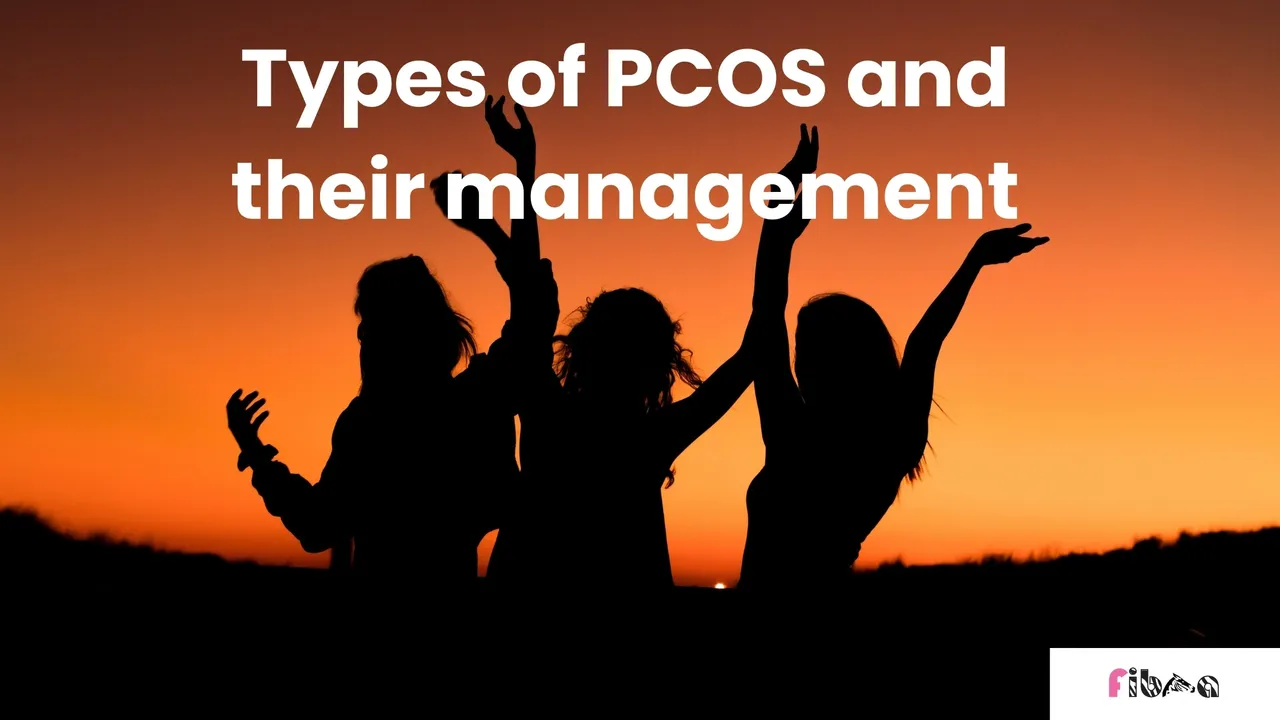Polycystic Ovary Syndrome (PCOS) is a common condition that affects 1 in every 10 women worldwide, many of which are still unaware about it. Moreover, it’s not a one-size-fits-all diagnosis; there are different types of PCOS, each with its own set of symptoms and implications. Understanding these variations is key to managing the condition and improving your quality of life. Let’s explore the different types of PCOS and the best ways to manage each one.
1. Insulin-Resistant PCOS
Insulin resistance is one of the most common features of PCOS, where the body’s cells don’t respond properly to insulin, resulting into obesity, fatigue and high risk of type 2 diabetes.
How to manage it:
- Diet: Focus on a low-carb, high-fiber diet to manage blood sugar levels. Incorporate whole grains, vegetables, lean proteins, and healthy fats.
- Exercise: Engage in regular physical activity, especially resistance training and cardio, to improve insulin sensitivity.
- Supplements: Consider supplements like inositol, which can help regulate insulin levels and improve symptoms.
- Medication: Consult your doctor about medications like metformin, which can help with insulin resistance.
2. Inflammatory PCOS
Chronic inflammation is a driving factor in inflammatory PCOS, contributing to symptoms like acne, hair loss, and irregular periods.
How to manage it:
- Anti-inflammatory diet: Include anti-inflammatory foods such as fatty fish (rich in omega-3s), leafy greens, berries, nuts, and seeds.
- Supplements: Consider anti-inflammatory supplements such as omega-3 fatty acids, curcumin (found in turmeric), and zinc.
- Reduce stress: Practice mindfulness, yoga, or meditation to manage stress levels, which can exacerbate inflammation.
- Adequate sleep: Ensure you’re getting 7-9 hours of sleep each night, as poor sleep can increase inflammation.
3. Adrenal PCOS
Adrenal PCOS involves the overproduction of androgens (male hormones) by the adrenal glands, leading to symptoms like excessive hair growth, acne, and scalp hair thinning.
How to manage it:
- Stress management: Since adrenal dysfunction is often stress-related, reducing stress through relaxation techniques like yoga, deep breathing, and mindfulness is crucial.
- Adaptogenic herbs: Herbs like ashwagandha and rhodiola can support adrenal health and balance stress hormones.
- Exercise: Engage in moderate exercise, but avoid over-exercising, which can put additional stress on your adrenals.
4. Post-Pill PCOS
This type of PCOS occurs after discontinuing birth control pills, often resulting in symptoms like irregular periods and acne.
How to manage it:
- Time: Sometimes, the body just needs time to rebalance hormones after stopping the pill.
- Support hormone balance: Focus on nutrient-dense foods and consider supplements like Vitex (chasteberry), which can help regulate menstrual cycles.
- Avoid synthetic hormones: While it may be tempting to go back on birth control, addressing the root cause of hormonal imbalances is key.
5. Classic PCOS
Classic PCOS, also known as “ovarian PCOS,” is characterized by ovarian cysts, irregular periods, and elevated androgen levels.
How to manage it:
- Hormonal treatments: Birth control pills, anti-androgen medications, or hormonal therapies may be recommended to regulate periods and reduce symptoms like acne and excessive hair growth.
- Diet and exercise: A balanced diet and regular exercise can help manage weight, which in turn regulates your cycle and reduces androgen levels.
- Supplements: Inositol supplements can support ovarian function and improve insulin sensitivity, both of which are beneficial for classic PCOS.
General Tips for Managing PCOS
Regardless of the type, managing PCOS requires a holistic approach:
- Maintain a healthy weight: Even a 5-10% reduction in body weight can significantly improve symptoms and regulate menstrual cycles.
- Balanced diet: Focus on whole foods, healthy fats, lean proteins, and plenty of vegetables to manage insulin and reduce inflammation.
- Stay active: Regular exercise helps improve insulin sensitivity, manage weight, and reduce stress levels.
- Manage stress: Chronic stress can worsen PCOS symptoms, so incorporating stress-relief techniques is crucial.
By understanding the different types of PCOS and how to manage them, you can take control of your health and work towards a more balanced life. Always consult your healthcare provider to create a personalized treatment plan that addresses your specific needs


